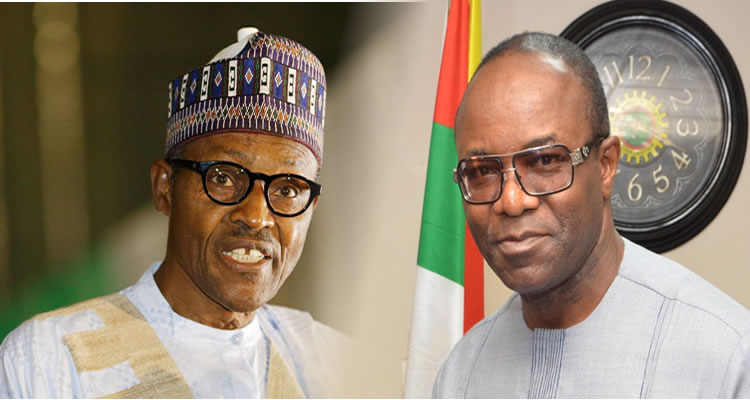The Federal Government has announced plan to further review its pricing template for petrol with the aim of removing several multi-layered charges and costs that affect the pump price of petrol at service stations across the country.
The Federal Government further reiterated its commitment to work with the Central Bank of Nigeria (CBN) to find ways of providing subsidised foreign exchange interventions for oil marketers in the country.
This was revealed on Saturday by the Minister of State for Petroleum Resources, Dr. Ibe Kachikwu.
Kachikwu lamented that the Nigerian National Petroleum Corporation (NNPC) currently imports nearly all litres of petrol used in the country at a huge cost.
According to him, marketers in the country were no longer importing petroleum products because of the unfavourable business fundamentals which had been influenced by the rising prices of crude oil.
In his words: “Downstream continues to be an area that has numerous challenges, that is why throwing ideas on them will continue to be something that any minister or chief executive of NNPC will continue to focus on.
“The environment has since changed, when we did all these, pricing for crude was more in the $25 to $30 per barrel, today it is in excess of $54, which is fantastic because it means that our revenue stream is improving.
“But, it is a twin window, whenever the price of crude goes up, obviously the price of refined petrol goes up and we begin to have systemic challenge in terms of the pricing on the local base, so that gap has begun to return and today what you find is that the NNPC continues to import massively on behalf of the Federal Government.
“It has gone back to about 90-95 per cent for the whole country and therefore its books are absorbing some of the cost implications of this.
“The second is that once this happens the marketers begin to shift backwards, participation by individual marketers to help us continue the normal business and marketing cycle that should be what you expect is no longer existing. Most of them are not importing”.
On the way forward, Kachikwu said: “One of the things we are doing is that we are looking at our existing template position, and what we are doing with that is first addressing some of the soft end of things that affect pricing.
“We are removing too many multi-layered charges on importation, we are working with the ministry of transport to reduce those to what was initially approve by the president, and as such, we should take away a good chunk of the expenses. We are working to see how the CBN can provide us with a fairly subsidised FX for products priced in dollars.”
On product availability, Kachikwu assured that, “There isn’t fuel scarcity, we are not short of products, but yet the downstream and midstream sectors continue to remain challenged. And what we are going to do is to analyse what we have done so far and begin to throw solutions to some of these challenges.”
“We had issues of pricing efficiency and governance, for at that time the prices we were selling at were so ridiculously below what the sustainable prices are. And you find a situation where basically marketers disappeared from the industry. So, we had massive shortages, queues and everything seem to be breaking down. We’ve since come out from that.
“First we’ve moved from a fully subsidy-based sector to a partially liberalised sector. I say partially because we haven’t quite achieved the template to have a fully liberalised sector. What that has done for us is that it had reduced consumption from 50 million liters to 37 million liters a day,” he stated.

